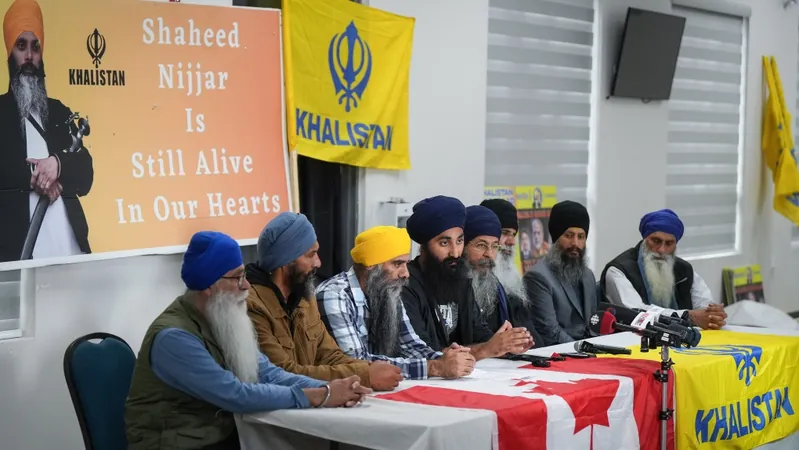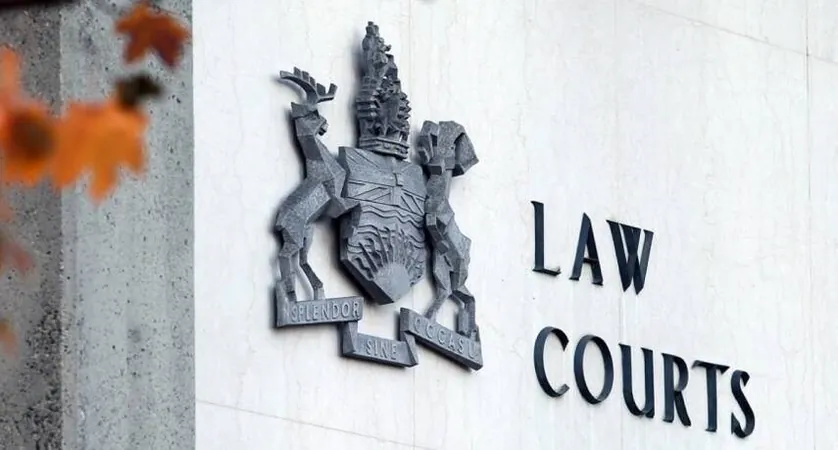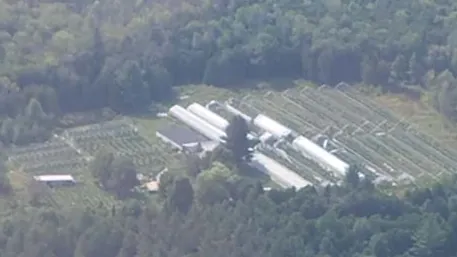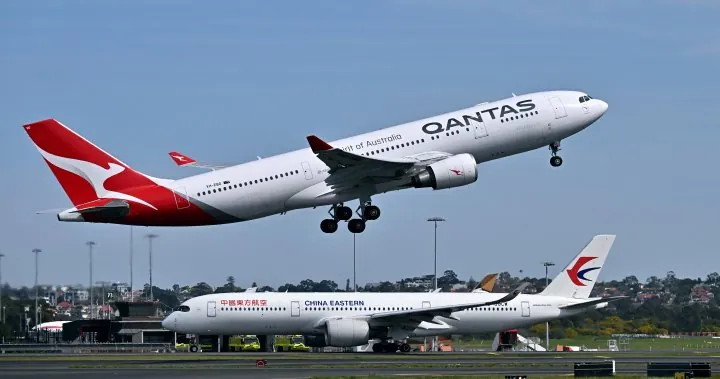
Sikh Community Demands Closure of Indian Consulates Amid Diplomatic Tensions in Canada
2024-10-15
Author: Charlotte
Sikh Community Calls for Closure of Indian Consulates
In a significant escalation of tensions between Canada and India, Sikh representatives from a British Columbia temple, where the president was tragically shot dead last year, are calling for the immediate closure of Indian consulates in Vancouver and Toronto. This demand follows the recent expulsion of six Indian diplomats by the Canadian government, amidst allegations of their involvement in serious crimes linked to the Khalistan independence movement.
Evidence of Implicated Diplomats
The call for action gained momentum after Canadian law enforcement agencies, specifically the Royal Canadian Mounted Police (RCMP), publicly stated they possess evidence suggesting these diplomats may be implicated in activities ranging from extortion to homicide. These developments come on the heels of heightened scrutiny surrounding the June 2023 assassination of Hardeep Singh Nijjar, a prominent activist and leader at the Guru Nanak Sikh Gurdwara in Surrey, B.C. The Canadian government has stated that credible intelligence connects India to Nijjar's killing, inciting fear and insecurity within Sikh communities across the country.
Concerns for Sikh Community Safety
Gurkeerat Singh, a spokesperson for the gurdwara, emphasized at a press conference that "the safety and security of Sikhs will still be in question" until the Indian consulates are shut down. His remarks underscored the overwhelming sentiment of apprehension within Sikh groups, who feel vulnerable with India's diplomatic presence in Canada.
India Denies Allegations
India, for its part, has vehemently denied the allegations leveled against its diplomats. The Indian government has refuted claims that its officials have used coercive tactics to gather sensitive information about South Asian Canadians, which purportedly led to violent actions against individuals advocating for Khalistani independence.
Threats to Sikh Activists
In a related statement, Jatinder Singh Grewal, a member of the advocacy organization Sikhs for Justice, noted the increasing threats faced by Sikhs since the previous expulsion of diplomat Pavan Kumar Rai in September 2022. Grewal stated, "We have a strong belief that the threat will still not subside," highlighting the Indian government's seriousness in suppressing the rights to self-determination for Punjab.
Investigations into Assassination
On October 15, 2023, Prime Minister Justin Trudeau revealed that Canadian intelligence services were investigating a potential link between India's government and Nijjar's assassination. Following these revelations, four Indian nationals have been charged with first-degree murder. Grewal contended that while the individuals who carried out the attack may be mere "tools," the larger issue involves the systematic collection of data on Sikhs in Canada by Indian diplomats.
RCMP Investigations
RCMP Commissioner Michael Duheme corroborated these concerns, revealing that investigations have shown Indian officials in Canada allegedly conducting clandestine surveillance of Sikh activists, leveraging diplomatic immunity to further their agenda. The RCMP is currently probing three homicides with possible ties to this diplomatic misconduct, although they have withheld any information confirming whether Nijjar's case is among them.
Call for Action
Grewal concluded with a fervent reiteration of the need to abolish the Indian consulates in Toronto and Vancouver, arguing that their continued operation poses a threat not only to Sikh community safety but also challenges Canadian sovereignty.
Ongoing Diplomatic Crisis
As the diplomatic crisis continues to unfold, the Sikh community is left grappling with a sense of insecurity, calling on the Canadian government to take decisive action. The resolution of these tensions remains precarious, with both nations now involved in a diplomatic spat following the mutual expulsion of diplomats. The situation is rapidly evolving, leaving Canadian and Indian citizens alike watching closely for further developments.









 Brasil (PT)
Brasil (PT)
 Canada (EN)
Canada (EN)
 Chile (ES)
Chile (ES)
 España (ES)
España (ES)
 France (FR)
France (FR)
 Hong Kong (EN)
Hong Kong (EN)
 Italia (IT)
Italia (IT)
 日本 (JA)
日本 (JA)
 Magyarország (HU)
Magyarország (HU)
 Norge (NO)
Norge (NO)
 Polska (PL)
Polska (PL)
 Schweiz (DE)
Schweiz (DE)
 Singapore (EN)
Singapore (EN)
 Sverige (SV)
Sverige (SV)
 Suomi (FI)
Suomi (FI)
 Türkiye (TR)
Türkiye (TR)